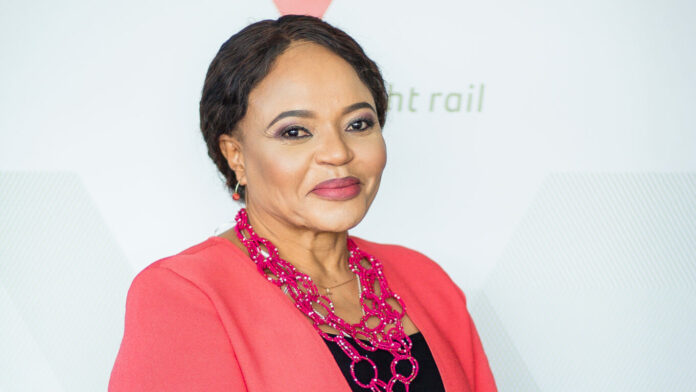
SOME 1,500 kilometres of cable were stolen from Transnet’s railway networks during its past financial year and more than 50% of the “security incidents” that occurred hit the rail lines feeding coal to Richards Bay.
That’s according to Transnet Freight Rail (TFR) CEO, Sizakele Mzimela who was presenting to the Coal & Energy Transition Day conference held in Johannesburg on Wednesday.
This was one of the two main reasons for TFR’s poor delivery performance on coal to the Richards Bay Coal Terminal (RBCT) during 2021 with the other being problems with availability of locomotives because of TFR’s difficulties in getting spare parts for the Chinese manufactured locomotives.
In calendar 2021 the RBCT exported just 58.72 million tons (Mt) of coal which was the lowest annual export volume since 1996 when 58.7Mt was exported. The RBCT’s targeted export volume for 2021 was 77Mt which matched TFR’s current “nameplate” capacity to rail coal to the RBCT with an additional 3.5Mt for the much smaller Grindrod RBT terminal.
Breaking it down Mzimela said 30% of the incidents directly affected the coal corridor while a further 23% hit the central corridor which was an “enabling line” feeding coal exports to the coal corridor.
Asked why the coal line was being hit so badly Mzimela blamed: “Syndicates and people who benefit when we are disrupted”, but did not provide any specifics.
Mzimela said measures taken to combat the thefts included closer co-operation with the coal customers which had provided 89 additional task teams and another 35 drones to cover the railway line.
She said that, as a result, since November last year the number of security incidents on the line had dropped from 35 a week to below 20 a week, but TFR was still looking for a more sustainable method of improving security.
This would likely be done through a move to more advanced security technology so that eventually security technology would provide 70% of the coverage on the line with “more traditional” security methods making up the balance.
“We have done benchmark studies around the world and there are technologies that we intend to implement,” she commented.
Mzimela added that Transnet had hoped to fast track the implementation of this additional security technology through raising some of the funding from its customers.
“We were not successful in getting the support of all of our customers so we are going to have to implement it ourselves but progressively.”
Asked about private public partnerships (PPPs) Mzimela commented that these were “very unlikely” on the coal and other commodity main lines at this stage.











